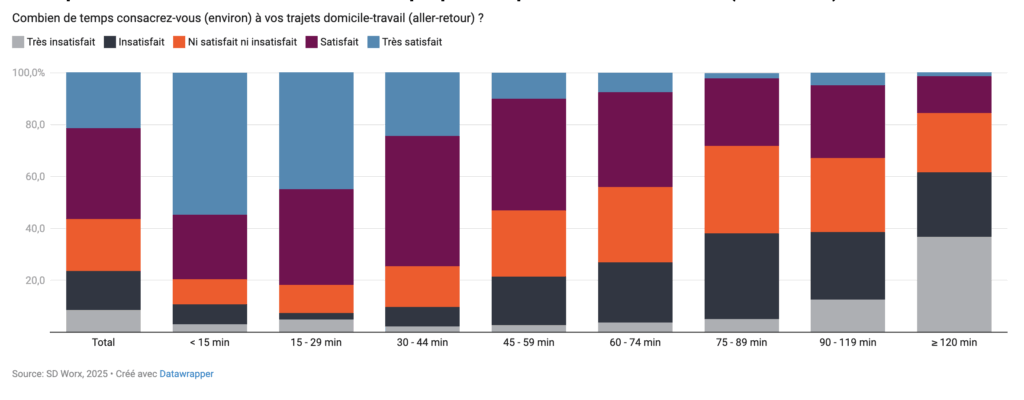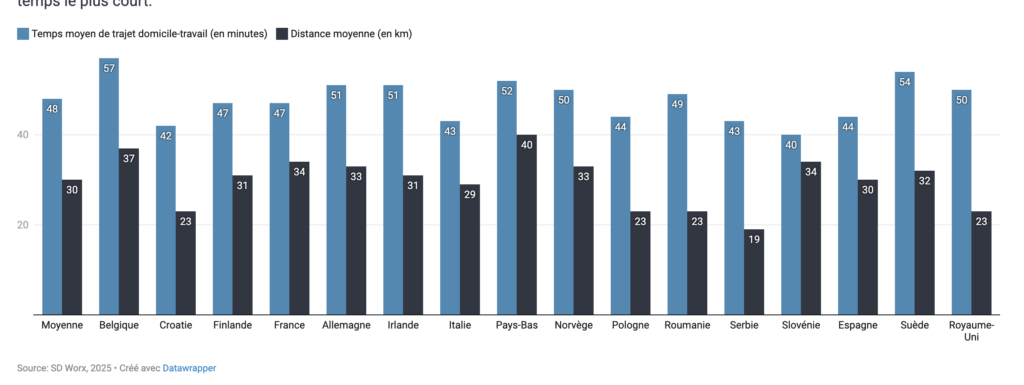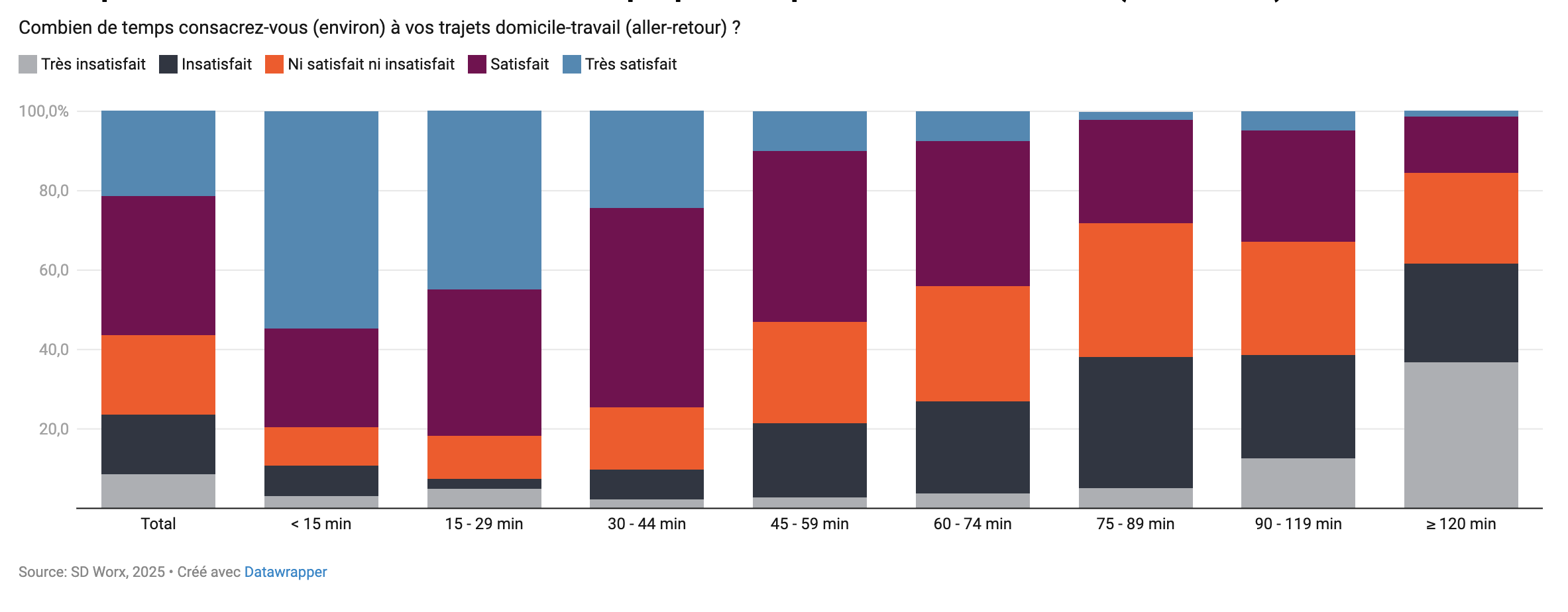In Belgium, mobility remains a critical and sensitive topic for employers. The study published by SD Worx in August 2025 confirms a persistent trend: Belgians spend more time commuting to and from work than any other Europeans.
For HR, fleet managers, and mobility managers, these are not just numbers. They point to real challenges: lost productivity, growing employee dissatisfaction, and the need to anticipate upcoming legal requirements such as the Company Travel Plan (PDE) and the federal mobility diagnosis. These are exactly the areas where Next Mobility supports organizations by helping them design tailored, sustainable mobility solutions.
Key Findings from the SD Worx 2025 Study
On average, Belgian workers spend 57 minutes per day commuting — the highest in Europe. The median commute time is 45 minutes round trip, meaning that at least half of Belgian workers spend even longer on the road.

One in five employees is considered a “super-commuter”, spending more than 1.5 hours daily in transport. Unsurprisingly, dissatisfaction runs high: 24% of Belgian workers say they are unhappy with their commute, one of the highest rates in Europe.

The car remains the dominant mode of transport (55%), but Belgium also stands out positively for its cycling culture: nearly 18% of workers commute by bike (traditional or electric), placing the country among Europe’s top three cycling nations. The average commuting distance — 18.5 km one way — highlights the scale of the issue: this is more than a short trip, it’s a significant daily time investment.

What This Means for Employers
For employers, these figures are a strong reminder: employee mobility directly impacts well-being, retention, and organizational performance. Every minute lost in traffic affects morale, workplace climate, and costs related to fleet management and absenteeism.
The forthcoming results of the PDE and the federal mobility diagnosis will be crucial in confirming these trends and providing a structured framework for corporate mobility policies. They will also help identify priorities: reducing reliance on the private car, strengthening cycling and public transport usage, and encouraging multimodal commuting.
Next steps : Acting today
At Next Mobility, we believe the tools to address these challenges are already available. Companies can start making a difference now by:
- Promoting cycling and multimodality: invest in secure bike parking, combined train + bike subscriptions, and incentives for active mobility.
- Rethinking fleet strategies: shift towards green fleets with electric or shared vehicles that better match employees’ real mobility needs.
- Introducing flexibility: adapt schedules and implement targeted remote work for “super-commuters.”
- Ask questions to your employees: gather and analyze internal commuting data (time, modes used, satisfaction) to turn regulatory obligations into opportunities for performance and sustainability.
Conclusion
Belgium may still hold the title of Europe’s commuting champion, but this does not have to remain the status quo. Employers can play a central role in reducing commuting times, improving employee well-being, and driving sustainable mobility policies.
Company Travel Plan (PDE) federal mobility diagnosis are done, the time to act is now. And this is exactly where Next Mobility comes in: helping organizations unlock their sustainable mobility by turning a structural problem into a lever for employee satisfaction, employer branding, and business performance.
